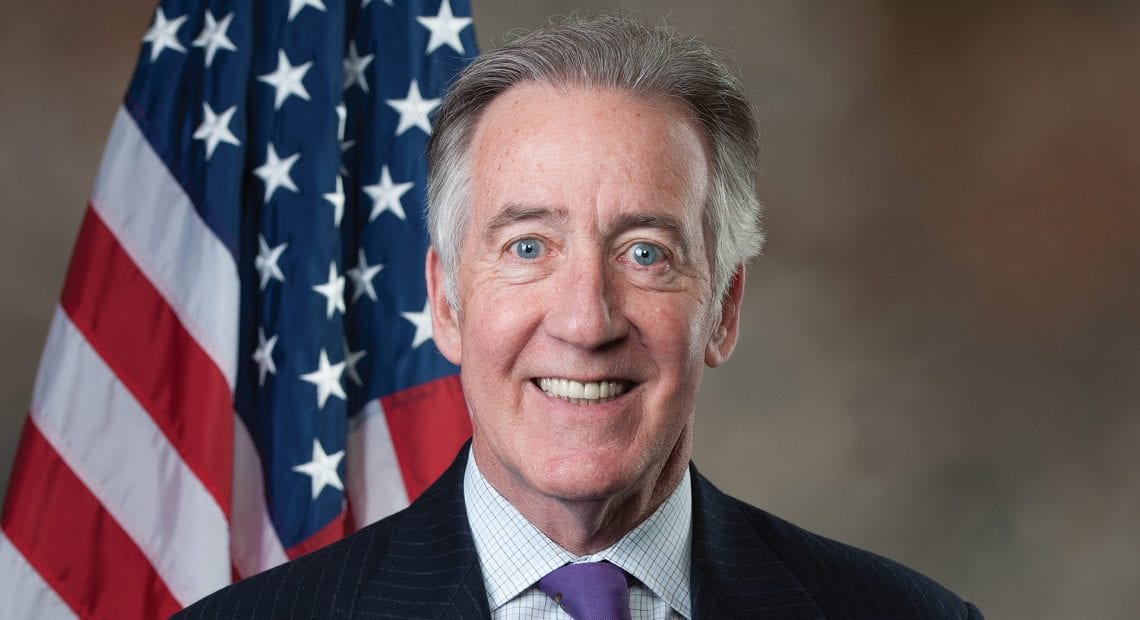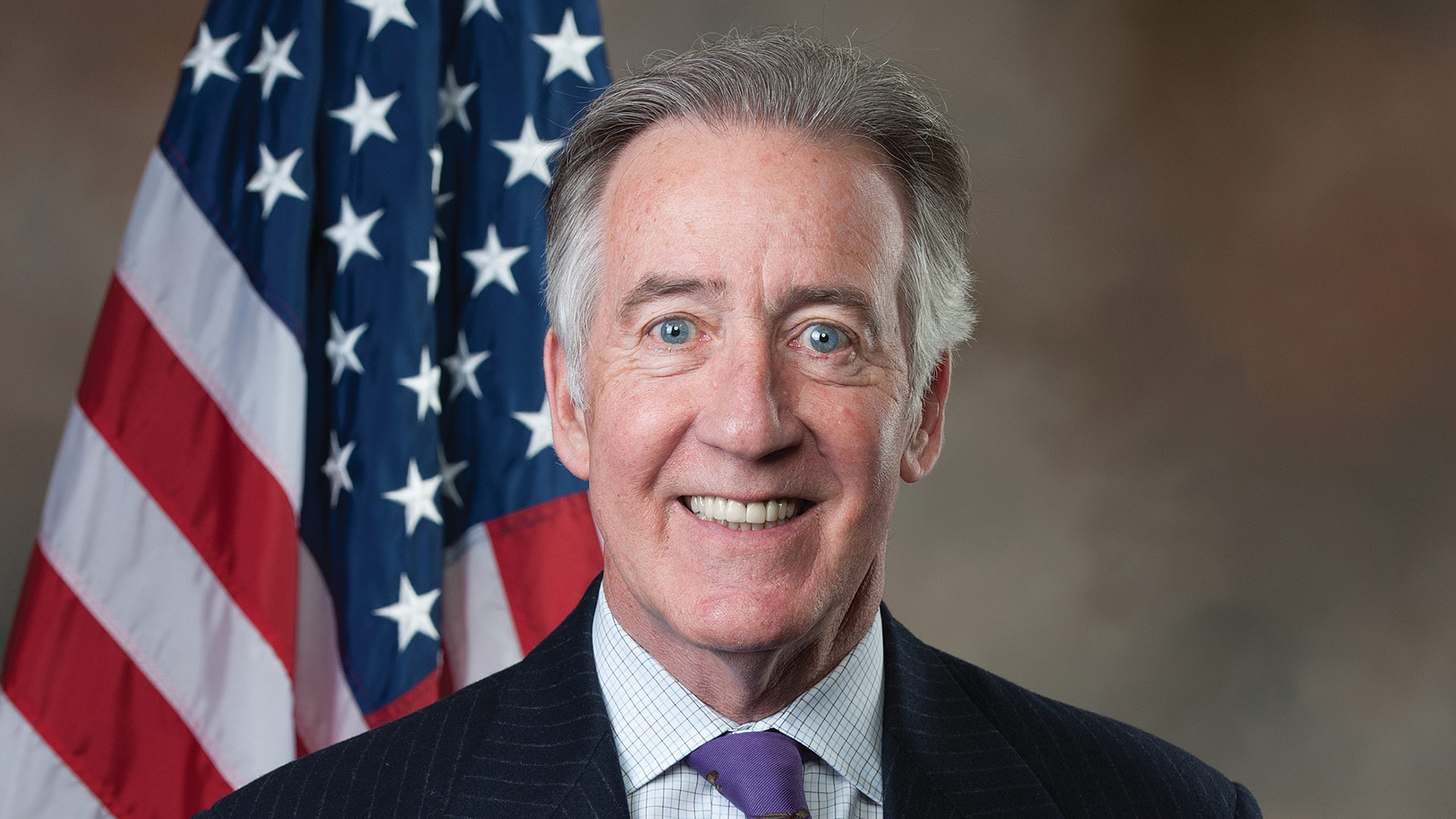
U.S. Rep. Richard Neal Offers Updates on Fiscal Stimulus
Progress Report

U.S. Rep. Richard Neal
U.S. Rep. Richard Neal, chairman of the House Ways and Means Committee, took part in a Tele-Town Hall staged by the Springfield Regional Chamber on April 7 to talk about some of the relief measures flowing out of Capitol Hill to help families and businesses battered by the COVID-19 pandemic — specifically, the large-scale economic shutdown it has caused. Here are some takeaways from that conversation.
Why was it important to take action in Washington quickly?
“We’re weathering an unprecedented public-health crisis, one that demands an unprecedented response from the federal government,” Neal said. “I’m proud of what we were able to do quickly.”
Those measures include the Families First Coronavirus Response Act, which provides paid-leave benefits to employees affected by the coronavirus emergency and new tax credits and tax relief to employers; the Coronavirus Aid, Relief, and Economic Security (CARES) Act, which delivers tax rebates to families, a payroll-tax credit to employers, and expanded unemployment assistance to states; and the Paycheck Protection Program (PPP), which authorizes up to $349 billion in forgivable loans to businesses to pay their employees during the crisis.
Implementation of these three phases of relief has been challenging, Neal conceded, but once problems are worked out, lawmakers will move on to a fourth phase, expanding on much of what has already been set in motion while eyeing large-scale economic investments like infrastructure (more on that later).
He stressed that the pandemic is a health crisis first, and praised the healthcare workers on the front lines of the crisis. “They have done a first-class job trying to contain this disease. It’s important to understand that we can’t get back to rebuilding our economy until we’re able to corral the healthcare challenges.”
“Economists agree that we need to get money into the hands of people in the lower and middle income groups fastest because not only do they need it, but they’ll spend it.”
That’s why short-term relief measures are so critical, he went on. “The most important thing to do was to get a cash infusion to people on the middle and lower economic scale, who will spend that money on the day-to-day necessities families need,” he said, listing food, rent, and medications among them.
So, when are the rebates coming?
Neal noted that people whose direct-deposit information is on file with the IRS will see the funds — $1,200 per adult and $500 per child, in most cases — as soon as this week. After that, paper checks will begin to flow, starting with those on the lower end of the income scale.
“Economists agree that we need to get money into the hands of people in the lower and middle income groups fastest because not only do they need it, but they’ll spend it,” he said. “The most important thing we did is get cash to taxpayers quickly, to make sure there’s cash in their pockets to put food on the table.”
Why are some small businesses struggling with the loan-application process?
“Part of the problem is there’s no book on the shelf for this one,” Neal said, adding that banks are concerned about liability. One solution might be to relax what are commonly called ‘know your customer’ standards, so banks are willing to take on new clients in this situation.
How does the CARES Act address organizations helping people avoid loss of housing?
The CARES Act and PPP apply to all nonprofit organizations as well as for-profit entities, Neal noted. As he and his colleagues have heard about increased housing needs as people’s income situations become more uncertain, they’ve been talking about ways to address this, such as bolstering the low-income housing tax credit. As it stands, the CARES Act does include $4 billion for homeless assistance.
Does the CARES Act discourage people from working by dramatically expanding unemployment assistance?
With some people already having trouble making ends meet, to cut their salary to the level unemployment benefits would typically pay — at a time when the economy is being put into what one of his staffers called a ‘medically induced coma’ — is too much to bear, Neal said.
“We had long, contentious conversations that went on for a couple of days, and I understand the argument made by the other side, and they understand our argument as well,” he added. “In the end, the better idea is to get people what they need right now.”
What can we expect in phase 4?
“I think infrastructure is the immediate need,” Neal said. “The president has already volunteered a number of $2 trillion, and I’m accepting of that. We need, at this time, to address this very core economic issue, and we have the opportunity to do it, given that interest rates are close to zero.”
One area of focus should be broadband access, he noted. “There are areas of this country that don’t even have 911 access, areas of Massachusetts where parents drive to the library parking lot at night so their kids can do homework.”
Then, of course, are needed improvements to highways, bridges, airports, water and sewer, and rail, the latter being a particular interest among lawmakers and municipal officials in Massachusetts. “Infrastructure is investment, and that’s how we should treat it — and, by the way, it’s badly needed.”
When should people expect to get back to work?
Simply put, “when we rein in the pandemic,” the congressman said, noting that health professionals at all levels are constantly assessing the track of the virus to make those determinations, but no one should expect the economy to rev back to life soon, despite President Trump’s stated wishes to the contrary. Instead, Neal said, people should listen to people like Dr. Anthony Fauci, the director of the National Institute of Allergy and Infectious Diseases, who has emerged as the public-health face of the pandemic.
“It’s the role of the professionals to advise when the pandemic is under control, because it could flare up again,” Neal said. “I think every time Dr. Fauci steps to the microphone, people should say, ‘this is the standard; this is what we should be doing.’ He has wide regard from Democrats, Republicans, and everyone else on Capitol Hill.”
Do you have any final thoughts?
“People are actually taking the advice of public officials in social distancing,” Neal said, and that’s good — and he understands how frustrating that routine may become as the weeks drag on. But there are worse sacrifices to make. “I saw a cartoon describing veterans and what they went through — Vietnam, Korea, World War II — and all we’re being asked to do is stay six feet from each other.”
At the same time, Neal said, “we’ve heard from those on the ground about the need for more supplies and personal protective equipment, and once a vaccine is available, we want to make sure it gets to people for free.” Other healthcare-related measures being put in place are 90-day medication refills so people don’t have to visit pharmacies as often, and expanded telehealth services so people can see their doctors from home.
As for the fiscal measures put in place so far, “even though it’s been described as stimulus, many of us consider it relief and recovery,” he went on. “I will predict unemployment insurance has to be extended, and we need more money for small-business assistance … as well as more direct payments to American families.”
—Joseph Bednar




